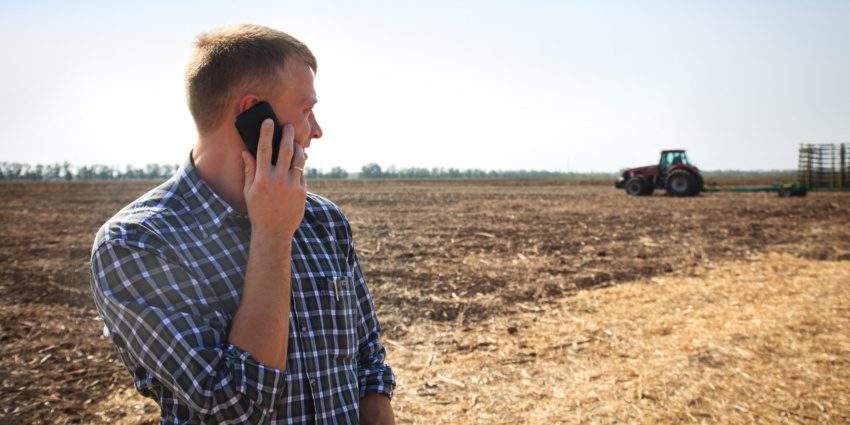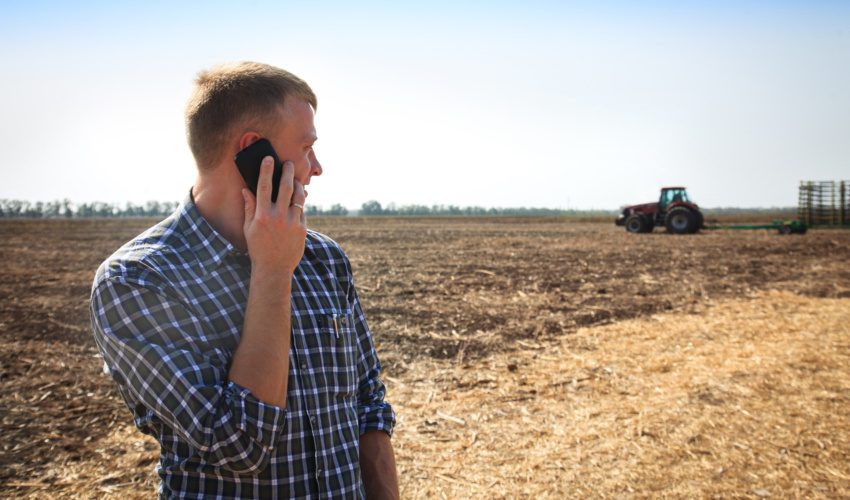Avera’s new stress hotline offers 24-hour local support for farmers
Jan. 31, 2019
This paid piece is sponsored by Avera Health.
Walt Bones farms with his brothers and brother-in-law on their multigenerational homestead, which has proudly stood since 1879. Not only are they in the beef and dairy business, but they also grow corn and soybeans.
Like many other regional farmers, Bones is feeling the pressure — but staying positive. “My grandpa endured the Dirty Thirties, my father went through the farm crisis of the ’80s. The ups and downs are inevitable in this industry.”
Agriculture is the backbone of South Dakota industry with approximately 31,000 farms and ranches. According to the South Dakota Department of Agriculture, one farmer has the potential to feed 155 individuals each year.
Low prices, relentless weather, machine breakdowns, trade turmoil and long hours away from family weigh heavily on the folks sitting alone in tractors or feeding livestock in the middle of the night.
That’s the problem: They feel alone, and they feel like they have to go through it alone. The pressure to maintain the family farm and home, put children through college and pay every expense in between can be too much as people watch their income decrease little by little over the years.
Avera and Avera Behavioral Health have started the Farmers’ Stress Hotline, available to farmers, ranchers and their families. It’s a toll-free number and available 24/7 for overworked individuals lying awake in worry at night.
When you call the Farmers’ Stress Hotline at 800-691-4336, an online operator will take inventory of your needs and direct you to local care, which may include talk therapy and/or medication management. You can call anonymously and your insurance will not be notified.
“Farmers are expected to be tough, but that ‘pull-yourself-up-by-the-bootstraps’ mentality is so unfair to them,” said Matthew Stanley, clinical vice president for the Avera Behavioral Health service line. “Mental health care in our rural population is what we specialize in, and we want our agricultural friends to know that we are here for them.”
Karl Oehlke of Avera Medical Group University Psychiatry also had a hand in the development of the Farmers’ Stress Hotline.
He recently talked to ag producers at a local farm show.
“Stress, fear, anxiety, frustration and depression are all words I’ve heard to describe the ag climate,” Oehlke said. “Farming and ranching will never be without unforeseen, uncontrollable challenges, which affect not only the producer but the family. We encourage anyone experiencing problems to reach out to us.”
When you have depression, anxiety and feelings of hopelessness compounding over time, the chemical makeup in your brain begins to change. At that point, it’s a good idea to look into medication to repair the imbalance.
“It doesn’t matter what age you are; everyone has gone through the worry about how to keep a job or business going to support the family,” said Jim Woster, a retired businessman and advocate for farmers and ranchers.
With salaries decreasing year after year, farmers are expanding production to supplement. This leads to even lower grain prices. They work twice as hard and see half the pay.
“Sometimes you feel hopeless, and you need to talk about it,” Woster said. “I’m glad Avera is putting the Farmers’ Stress Hotline out there.”
“Ninety-seven percent of South Dakota farms are family-owned, and we stand on faith, family and community for support,” Bones said. “This is the first time some of these younger farmers have gone through a hard economy, so the hotline adds another supportive resource when you don’t know what to do.”
Maintaining the family farm should never cost you your life. For 24/7 support, call the Farmers’ Stress Hotline at 800-691-4336 or the National Suicide Hotline at 800-273-8255.








